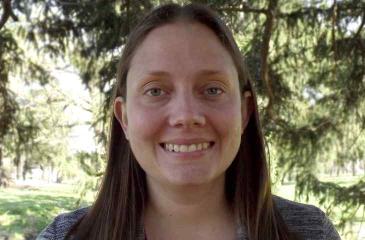Alexis Swendener grew up on a cattle ranch in rural western Nebraska which motivated her to study and advocate for the health and wellbeing of rural communities. She graduated with her PhD in sociology from the University of Nebraska-Lincoln. Her training as a sociologist with a focus on how broader social inequalities lead to health disparities among various groups motivated her approach in studying marginalized and historically-excluded rural residents.
Swendener has studied these domains primarily within rural and farming families. One stream of her research focuses on how couples balance jobs, farm work, and family/care work as well as how they feel about their labor in these roles— and how this in turn impacts their health and relationships.
Within other social contexts, her work extends the understanding of sources of health disparities among marginalized and underserved families, including sexual and gender minorities, racial and ethnic minorities, and those at intersections of these groups.
Swendener was recently selected as the next fellow of the Rural Health Equity Postdoctoral Program, a program that address knowledge gaps in health policy, with a focus on rural areas and geographic inequities. She starts her two-year postdoctoral fellowship this September.
“I find that both my training, as well as my background, aid the questions I ask and how I approach my research. I am most looking forward to working alongside and collaborating on projects with the talented researchers at the center and benefitting from the support of a team known for mentoring early career researchers. I am also excited to contribute to making meaningful impacts on rural lives via research that impacts social policy,” said Swendener.
As the Rural Health Equity Postdoctoral Fellow, Swendener will work with Dr. Carrie Henning-Smith on a project related to investigating interrelated factors influencing rural health outcomes such as community support, family support, and work/family balance, with a focus on how these processes affect marginalized rural groups.
Her future career goals are to gain a position as a tenure-track faculty member or as a research professor.
